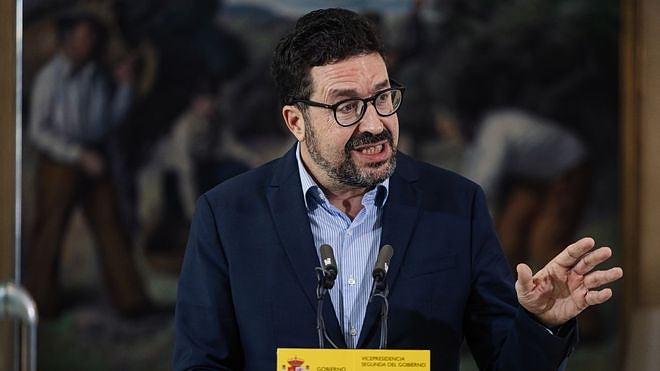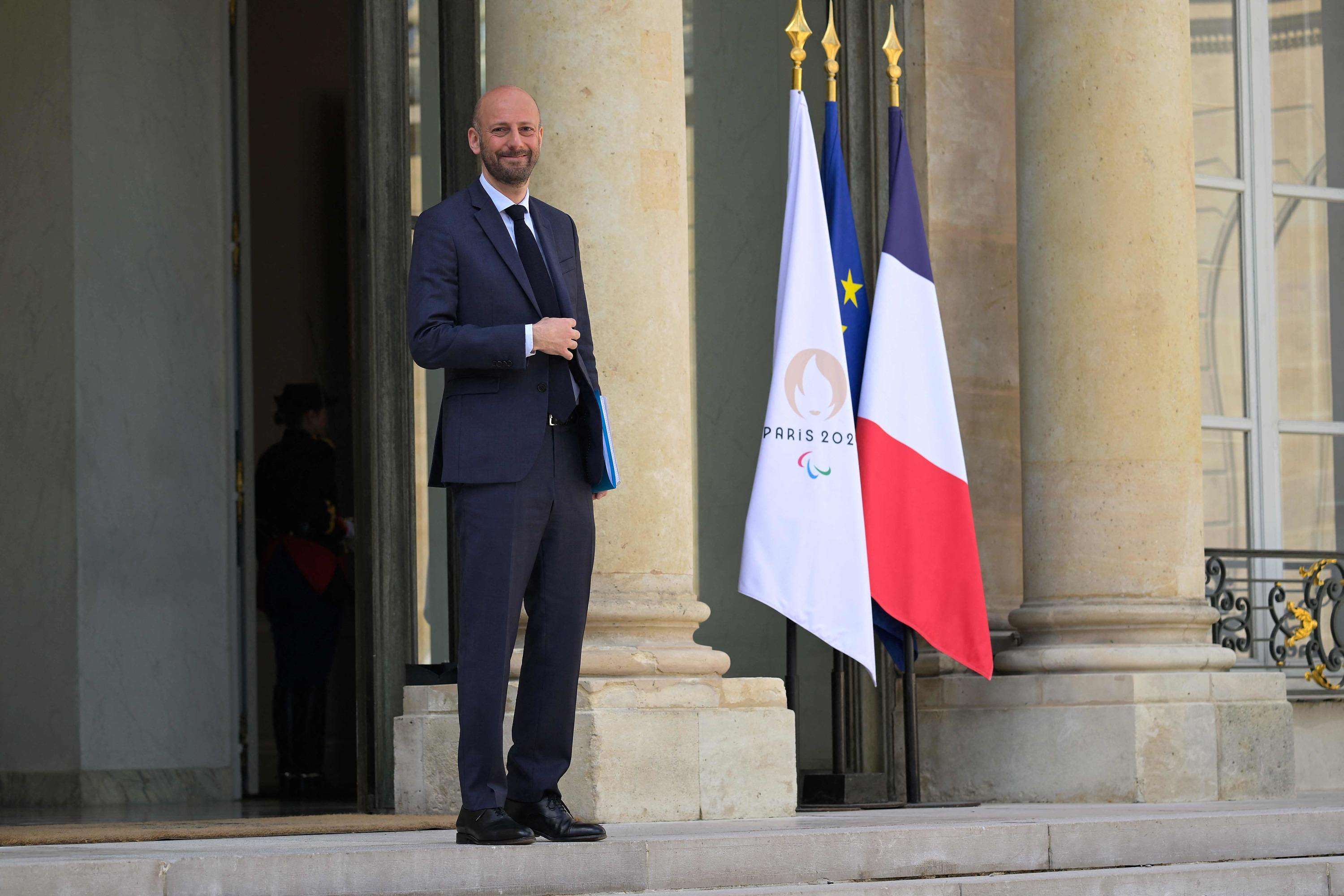The minimum Social Security contribution bases will also rise by 5%, which represents an additional increase in costs for companies, in addition to salaries.
In short, the Government will apply the increase in the SMI and the minimum contribution bases with retroactive effect from January 1. Among other things, because the Council of Ministers will take time to approve the decree that makes the improvement of this income effective. This is due to the administrative processing that the standard must now go through.
In any case, the Government thus punishes CEOE and Cepyme for not accepting an agreement with the unions to increase rent by 4%. That is, the first proposal that Yolanda Díaz made to them, after verifying that, ultimately, the businessmen were willing to reach that figure, if inflation exceeded 3% at the end of the year.
The problem was in the businessmen's demand that companies could affect the increase in the minimum wage in public tenders. A request that the first vice president and Minister of Finance, María Jesús Montero, rejects. Without that proposal, CEOE and Cepyme were not going to sign anything. The employers' associations also requested a 20% bonus on the social contributions of companies in the rural sector.
Therefore, the Government and the unions have agreed on a 5% increase in the SMI for next year, instead of 4%, upon verifying that the employers were not going to sign anything that did not register these two demands.
For this reason, after this morning's meeting, the Secretary of State for Employment, Joaquín Pérez Rey, said the following: "[The agreement with the employers] could not be. We have given our all, we have tried until the end. last minute and we have not achieved it, but we have reached an agreement with the unions to raise the SMI by 5%". An increase that will mean an increase of 54 euros more per month. From 1,080 to 1,134 euros per month. The number of workers benefiting from this measure amounts to more than 2.5 million people, of which a third will be women and young people, who, from now on, "will be able to live better."
"This increase will also allow us to raise the hourly wage of domestic workers and continue advancing in a more prosperous country, which ends the wage differential with Europe, which continues to fight against the gender gap and which redeems itself from the fatal element that is wage poverty," Pérez Rey highlighted.
The president of the CEOE, Antonio Garamendi, defined the Government's decision as a swallow: "If you don't want a cup, a cup and a half," said Garamendi, who insisted on transferring the increases in the SMI to public contracts, a request rejected from the Government.
Therefore, for the third consecutive year, the employers' association has not signed an agreement to increase the interprofessional minimum wage. The last time was in 2020, when the rent went from 900 to 950 euros per month.

 B:SM will break its investment record this year with 62 million euros
B:SM will break its investment record this year with 62 million euros War in Ukraine: when kyiv attacks Russia with inflatable balloons loaded with explosives
War in Ukraine: when kyiv attacks Russia with inflatable balloons loaded with explosives United States: divided on the question of presidential immunity, the Supreme Court offers respite to Trump
United States: divided on the question of presidential immunity, the Supreme Court offers respite to Trump Maurizio Molinari: “the Scurati affair, a European injury”
Maurizio Molinari: “the Scurati affair, a European injury” Beware of the three main sources of poisoning in children
Beware of the three main sources of poisoning in children First three cases of “native” cholera confirmed in Mayotte
First three cases of “native” cholera confirmed in Mayotte Meningitis: compulsory vaccination for babies will be extended in 2025
Meningitis: compulsory vaccination for babies will be extended in 2025 Spain is the country in the European Union with the most overqualified workers for their jobs
Spain is the country in the European Union with the most overqualified workers for their jobs In the United States, a Boeing 767 loses its emergency slide shortly after takeoff
In the United States, a Boeing 767 loses its emergency slide shortly after takeoff The A13 motorway will not reopen on May 1
The A13 motorway will not reopen on May 1 More than 1,500 items for less than 1 euro: the Dutch discounter Action opens a third store in Paris
More than 1,500 items for less than 1 euro: the Dutch discounter Action opens a third store in Paris 100 million euros in loans, water storage, Ecophyto plan… New measures from the executive towards farmers
100 million euros in loans, water storage, Ecophyto plan… New measures from the executive towards farmers New York justice returns 30 works of art looted from Cambodia and Indonesia
New York justice returns 30 works of art looted from Cambodia and Indonesia Les Galons de la BD dedicates War Photographers, a virtuoso album on the Spanish War
Les Galons de la BD dedicates War Photographers, a virtuoso album on the Spanish War Theater: Kevin, or the example of an academic failure
Theater: Kevin, or the example of an academic failure The eye of the INA: Jean Carmet, the thirst for life of a great actor
The eye of the INA: Jean Carmet, the thirst for life of a great actor Skoda Kodiaq 2024: a 'beast' plug-in hybrid SUV
Skoda Kodiaq 2024: a 'beast' plug-in hybrid SUV Tesla launches a new Model Y with 600 km of autonomy at a "more accessible price"
Tesla launches a new Model Y with 600 km of autonomy at a "more accessible price" The 10 best-selling cars in March 2024 in Spain: sales fall due to Easter
The 10 best-selling cars in March 2024 in Spain: sales fall due to Easter A private jet company buys more than 100 flying cars
A private jet company buys more than 100 flying cars This is how housing prices have changed in Spain in the last decade
This is how housing prices have changed in Spain in the last decade The home mortgage firm drops 10% in January and interest soars to 3.46%
The home mortgage firm drops 10% in January and interest soars to 3.46% The jewel of the Rocío de Nagüeles urbanization: a dream villa in Marbella
The jewel of the Rocío de Nagüeles urbanization: a dream villa in Marbella Rental prices grow by 7.3% in February: where does it go up and where does it go down?
Rental prices grow by 7.3% in February: where does it go up and where does it go down? Even on a mission for NATO, the Charles-de-Gaulle remains under French control, Lecornu responds to Mélenchon
Even on a mission for NATO, the Charles-de-Gaulle remains under French control, Lecornu responds to Mélenchon “Deadly Europe”, “economic decline”, immigration… What to remember from Emmanuel Macron’s speech at the Sorbonne
“Deadly Europe”, “economic decline”, immigration… What to remember from Emmanuel Macron’s speech at the Sorbonne Sale of Biogaran: The Republicans write to Emmanuel Macron
Sale of Biogaran: The Republicans write to Emmanuel Macron Europeans: “All those who claim that we don’t need Europe are liars”, criticizes Bayrou
Europeans: “All those who claim that we don’t need Europe are liars”, criticizes Bayrou These French cities that will boycott the World Cup in Qatar
These French cities that will boycott the World Cup in Qatar Toulouse-Racing 92: The liberating entry of Antoine Dupont, the Ile-de-France shipwreck... The tops and the flops
Toulouse-Racing 92: The liberating entry of Antoine Dupont, the Ile-de-France shipwreck... The tops and the flops Premier League: Sheffield United relegated after heavy defeat against Newcastle
Premier League: Sheffield United relegated after heavy defeat against Newcastle Judo: Audrey Tcheuméo consoles herself with a 5th European coronation
Judo: Audrey Tcheuméo consoles herself with a 5th European coronation Tennis: in Madrid, Rafael Nadal wins his revenge against Alex De Minaur
Tennis: in Madrid, Rafael Nadal wins his revenge against Alex De Minaur


















